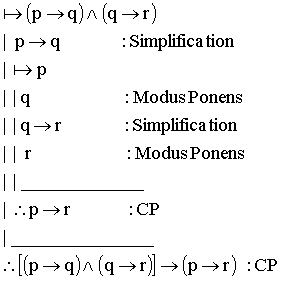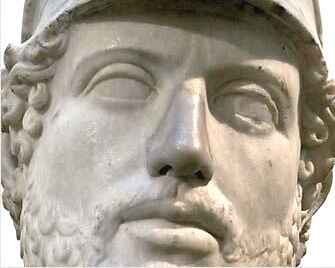Thucydides Roundtable, Book II: Tactical Patterns in the Siege of Plataea
Saturday, October 29th, 2016[by A. E. Clark]
The fall of Plataea—the city where the war began (2.2)—unfolds in three acts:
2.71-2.78 Arrival of Peloponnesians, negotiations, siege
3:20-3.24 Breakout and evasion
3.52-3.68 Surrender, plea for compassion, annihilation
It is a powerful drama, rich in vivid details that make you forget these things happened 2,445 years ago.
…and thus even the last of them got over the ditch, though not without effort and difficulty; as ice had formed in it, not strong enough to walk upon, but of that watery kind which generally comes with a wind more east than north, and the snow which this wind had caused to fall during the night had made the water in the ditch rise, so that they could scarcely breast it as they crossed.
This vivid storytelling is instructive. The struggle for Plataea illustrates timeless patterns of conflict.
The first phase of the siege, as described in Book 2, unfolds in a spiral of action and response, thrust and parry. Let us note a first stage that occurs long before the reported action:
1a) Plataeans protect their town with a wall.
The action begins with a Spartan countermove:
1b) Spartans begin raising a mound that threatens to reach the top of the wall
2a) Plataeans extend the wall upwards there with building materials taken from their houses
2b) Spartans continue raising mound
3a) Plataeans open base of wall where it touches mound and pull materal out of mound
3b) Spartans harden that side of the mound with clay and wattles
4a) Plataeans tunnel under wall (and hardened side of mound) and remove mound material from underneath
This went on for a long while without the enemy outside finding it out, so that for all they threw on the top their mound made no progress in proportion, being carried away from beneath and constantly settling down in the vacuum.
This step introduces a new element into the competition. Till now, every step was overt: each contestant could see what his adversary was doing. Now stealth enters the picture: for the first time, one party enjoys an advantage because the other does not know what he is doing. Perhaps for that reason, there doesn’t seem to be a Spartan response to this move.
Then the Plataeans rethink their approach by changing the problem they are trying to solve. Instead of “How do we prevent the Spartans from using the mound to get over the wall,” they ask “How can we ensure that using the mound to get over the wall will not do the Spartans any good?” Rather than a step, it’s a leap:
5a) Plataeans construct a crescent-shaped wall inside the town, so that if the Spartans eventually succeed in getting over the wall via the mound, they’ll need to start all over again, this time enfiladed.
Thucydides then summarizes an arms race of defensive vs offensive machines which may have occurred simultaneously with steps 1-5. We realize, then, that the author has been simplifying real life (in which many things happen at the same time) into a game whose players get alternating turns. The metaphor of conflict as a game of alternating turns seems natural to us, but it usually requires some rearrangement of the facts. What makes the thrust and parry part of the siege so appealing and memorable is that it conforms very well to the game model.
Here, briefly, is the arms race that was also going on:
6a) Spartans employ battering rams to good effect.
6b) Plataeans devise and employ an anti-battering ram, a heavy pendulum whose angular momentum prevails over the ram in the direction in which the ram is weakest (from the side).
Now, Thucydides says, it was the Spartans’ turn to rethink, probably in response to Step 5a.
7a) Spartans deploy incendiaries:
The consequence was a fire greater than anyone had ever yet seen produced by human agency . . . within an ace of proving fatal to the Plataeans . . .
But the weather is insufficiently favorable. Only now does this episode acknowledge the role of chance. Thus far, we have watched a game of chess; here, instead of a Plataean countermove, the dice are rolled.
8a) Spartans circumvallate the town, and the blockade begins.
At the risk of overthinking a great story, may I suggest it illustrates tactical responses of various kinds.
Steps 1-2 describe a one-dimensional competition. You have a wall that is X meters high; I’ll build a mound X meters high that will neutralize your wall; then you make your wall higher there; I’ll make my mound higher, too.
Step 3a introduces something new: the Plataeans, instead of trying to surpass the Spartans’ move, undertake to sabotage it. There is still a one-dimensional competition, but instead of adding to their own ‘score,’ the Plataeans are now subtracting from the Spartans’. There is another innovation, as well: the wall, which has served to prevent passage, is now being used by its owner to enable passage. The Plateans pass through their own wall.
With Step 3b, the Spartans, who are trying to achieve passage (over the top), build their own wall (of clay and wattles) to prevent the Plataeans from using *their* wall for passage (at the bottom). Conceptually, the Spartans are still playing catch-up. At each stage, the Plataeans have had the initiative.
Step 4a, although continuing the subtractive tactic of 3a, involves a kind of flanking maneuver (from underneath). The enemy resource being sabotaged may still be one-dimensional, but the means of attacking it no longer is.
Step 5a is a leap forward that can be described as turning a threatened defeat into a delaying action, relocating the engagement to more favorable ground, or allowing the enemy to advance so that he will become vulnerable.
In the arms race of the machines (Step 6), although the Spartans take the initiative, the Plataeans show more ingenuity. Here, too, one may discern a flanking maneuver: the defensive machines strike the offensive machines from the side. It is remarkable that a motif of envelopment appears three times in the tactics of the besieged defenders.
With 7a) and 8a), the Spartans for the first time show an ability to rethink their position. But one wonders why they didn’t try incendiaries earlier — the use of fire was a well-known tactic. And is Thucydides implying that they failed to wait for a favorable wind before lighting their fires? Settling down to the blockade certainly doesn’t represent a masterstroke: it is an expensive, time-consuming, and brute-force method that they hoped they wouldn’t need to use.
And in Book 3, we will see the Plataeans arrange the escape of half their men even when completely surrounded by hostile fortifications. On that occasion their tactics will include tricks that bear an uncanny resemblance to electronic countermeasures.
All in all, it is hard not to come away with admiration for the Plataeans. But in the end, their city was razed to the ground: tactical (and, as we will see in Book 3, rhetorical) brilliance can’t compensate for a strategically hopeless position. Perhaps that is the deepest lesson of this entrancing tale.
————————————————————————————————–
This is a welcome guest post by A.E. Clark. When not leaving thoughtful reflections in Thucydides Roundtable comment threads, Mr. Clark translates works of politically sensitive Chinese literature for Ragged Banner Press.




